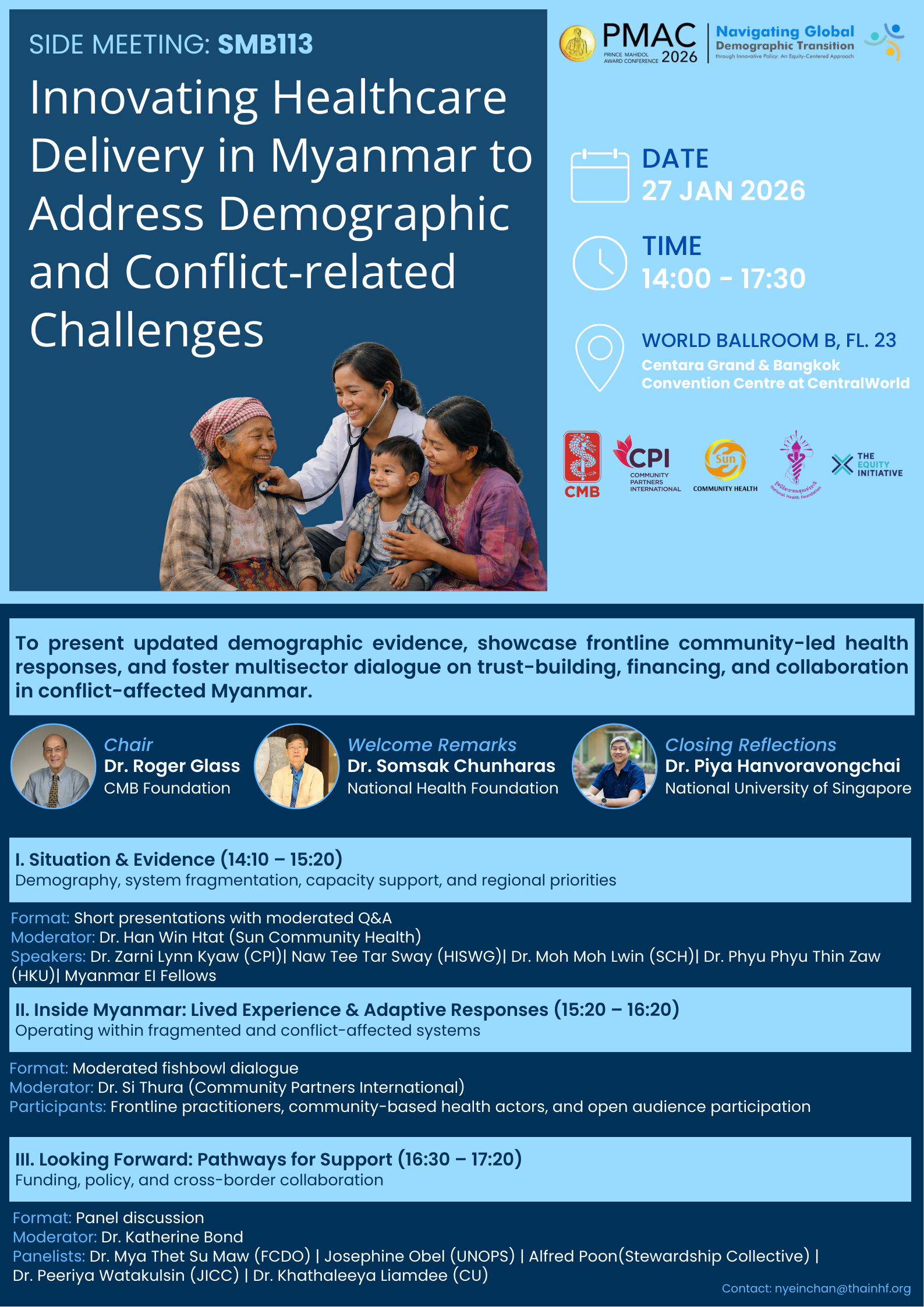Side Meetings
SMB113
From Fractured to Resilient Health Systems: Innovating Healthcare Delivery in Myanmar to Address Demographic and Conflict-related Challenges
27
Jan
- CMB Foundation
- Community Partners International
- Sun Community Health
- The Equity Initiative
- National Health Foundation

Myanmar presents intersecting dynamics of a complex demographic transition under the extreme pressure of a protracted political crisis. Myanmar’s health landscape has been profoundly fractured, creating a situation where traditional, centralized health system structures are no longer sufficient. In this vacuum, a diverse ecosystem of actors, including Ethnic Health Organizations (EHOs), local NGOs, and community-based groups, has become the lifeline for millions. However, this fragmented environment presents both challenges and opportunities. The key challenge is coordination in a low-trust environment. The key opportunity is to build a more resilient, equitable, and decentralized health system from the ground up.
1. To present latest evidence on the demographic situation of Myanmar
2. To showcase innovative frontline health strategies for conflict-affected populations, focusing on the health-seeking behaviors of displaced persons and community-led health interventions.
3. To facilitate a frank, multistakeholder dialogue on potential actionable strategies to overcome barriers to trust, evolving funding mechanisms, and partnerships and commitments for greater collaboration.

